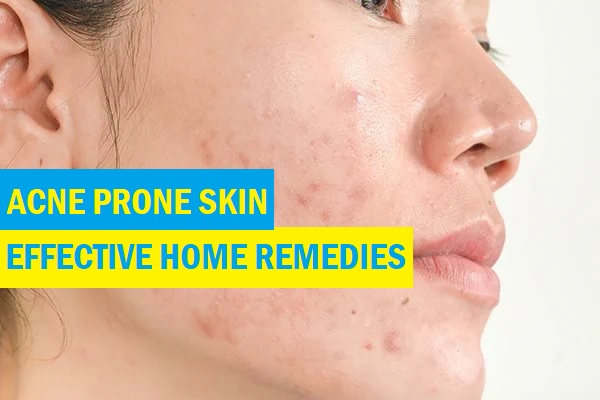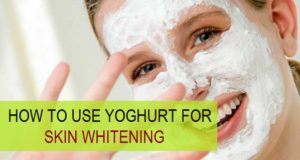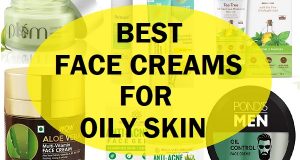
Acne on oily skin can be a persistent concern, but understanding the causes and implementing appropriate skincare measures can make a significant difference. By addressing excess sebum production, practicing regular cleansing and exfoliation, and seeking professional guidance when necessary, you can achieve clearer, healthier skin. Embrace a consistent skincare routine tailored to your skin’s unique needs, and remember to be patient and gentle with your skin as you strive for long-term acne control.
Decoding Acne-Prone Skin: Understanding Causes of Acne on Oily Skin
Acne-prone skin can be a challenging condition to manage, especially when it is accompanied by excess oil production. Oily skin tends to be more susceptible to acne due to the increased sebum production, which can clog pores and create a breeding ground for bacteria. In this article, we will delve into the unique characteristics of acne-prone and oily skin, uncovering the underlying causes of acne and offering insights into effective prevention and treatment methods.
Understanding Acne-Prone and Oily Skin: Acne-prone skin refers to skin that is more prone to developing acne lesions such as pimples, blackheads, and whiteheads. Oily skin, on the other hand, is characterized by excessive sebum production, resulting in a shiny appearance and a higher likelihood of clogged pores. When these two skin types intersect, it can lead to a perfect storm for acne breakouts.
Causes of Acne on Oily Skin:
Excess Sebum Production: Oily skin is often caused by overactive sebaceous glands, leading to an overproduction of sebum. This excess oil can mix with dead skin cells and bacteria, clogging the hair follicles and resulting in acne breakouts.
Hormonal Factors: Hormonal imbalances can significantly impact sebum production. During puberty, an increase in androgen hormones stimulates the sebaceous glands, leading to heightened oil production. Hormonal fluctuations during the menstrual cycle can also contribute to acne breakouts in women.
Clogged Pores: The excess sebum produced by oily skin can mix with dead skin cells and other impurities, causing the pores to become blocked. These clogged pores create an ideal environment for the proliferation of acne-causing bacteria.
Bacterial Growth: Propionibacterium acnes (P. acnes), a type of bacteria present on the skin, can multiply rapidly in the presence of excess oil. The overgrowth of P. acnes can trigger inflammation and lead to the formation of inflammatory acne lesions.
Genetic Predisposition: Genetics can play a role in determining an individual’s susceptibility to acne. If your parents or close relatives have a history of acne-prone or oily skin, you may be more prone to experiencing similar skin conditions.
Acne Prevention and Treatment:
Gentle Cleansing: Use a mild, non-comedogenic cleanser specifically formulated for oily or acne-prone skin. Avoid harsh scrubbing, as it can irritate the skin and exacerbate acne.
Oil Control: Incorporate oil-free and non-comedogenic skincare products into your routine to help regulate sebum production. Look for ingredients such as salicylic acid or benzoyl peroxide, which can effectively target acne-causing bacteria.
Regular Exfoliation: Exfoliate gently once or twice a week using chemical exfoliants containing alpha hydroxy acids (AHAs) or beta hydroxy acids (BHAs). These exfoliants help unclog pores and remove dead skin cells, promoting clearer skin.
Hydration and Moisturization: Even oily skin needs adequate hydration. Opt for lightweight, oil-free moisturizers that won’t clog pores but provide essential hydration to maintain a balanced complexion.
Professional Treatments: Consider seeking professional guidance from a dermatologist who can recommend specialized treatments such as topical retinoids, chemical peels, or laser therapy to effectively manage acne-prone and oily skin.
Home Remedies For Acne and Pimples
When dealing with acne, it’s important to remember that there is no quick-fix solution. However, several home remedies can help alleviate symptoms and promote healthier skin. Consider these unique and natural remedies to address acne-prone skin:
Harness the Power of Tea Tree Oil: Recognized for its antibacterial properties, tea tree oil effectively reduces inflammation and eliminates acne-causing bacteria. Dilute tea tree oil with a carrier oil like coconut or jojoba oil, then apply it to the affected areas using a cotton swab.
Soothe with Honey: Honey possesses antimicrobial and anti-inflammatory properties that can help calm and heal acne-prone skin. Apply raw honey directly to the affected areas, leaving it on for 10-15 minutes before rinsing off with warm water.
Balance Skin pH with Apple Cider Vinegar: Apple cider vinegar’s acidic nature helps balance the skin’s pH and minimize acne appearance. Mix one part apple cider vinegar with three parts water, apply it to the skin using a cotton pad, and leave it on for a few minutes before rinsing off.
Experience the Benefits of Aloe Vera: Aloe vera gel is renowned for its anti-inflammatory and soothing properties, making it an ideal remedy for reducing redness and irritation caused by acne. Extract the gel from an aloe vera leaf and apply it directly to the affected areas. Leave it on for 10-15 minutes before rinsing off.
Harness the Antioxidants of Green Tea: Green tea is packed with antioxidants and anti-inflammatory compounds that can effectively reduce acne symptoms. Brew a cup of green tea, allow it to cool, then apply it to the skin using a cotton ball. Leave it on for 10-15 minutes before rinsing off.
Exfoliate with Lemon Juice: The acidic properties of lemon juice act as a natural exfoliant, helping to remove dead skin cells and control oiliness. Dilute fresh lemon juice with an equal amount of water, apply it to the affected areas with a cotton pad, and leave it on for 10-15 minutes before rinsing off.
Control Oil Production with Witch Hazel: Witch hazel serves as an astringent, regulating oil production and reducing inflammation. Apply witch hazel to the affected areas using a cotton ball, leave it on for a few minutes, then rinse off with water.
Remember to conduct a patch test before applying any home remedy to your entire face to ensure it doesn’t cause adverse reactions. If your acne persists or worsens despite home remedies, it’s advisable to consult a dermatologist for personalized advice and suitable treatment options.
 Tips and Beauty Site about Skin care, Hair care, Health, weight loss and lifestyle tips
Tips and Beauty Site about Skin care, Hair care, Health, weight loss and lifestyle tips






